Integrated Substance Use Disorder Training Program Faculty
About the Integrated Substance Use Disorder Training Program
The Integrated Substance Use Disorder Training Program prepares nurse practitioners, psychologists and social workers for clinical and academic careers in addiction medicine.
Meet the faculty of the Integrated Substance Use Disorder Training Program.
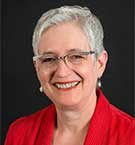 Martha T. Kane, PhD
Martha T. Kane, PhD
Program Director
Clinical Director of the Program in Substance Use & Addiction Services
Dr. Martha Kane is a licensed clinical psychologist who has held numerous positions in various MGH substance use disorders programs and in the Ambulatory Psychiatry division at Massachusetts General Hospital over the last two decades. In 2020 she took on the role of Unit Chief for Behavioral Health at the MGH Charlestown Health Center, having transitioned from her role as Clinical Director for Ambulatory Psychiatry, which she had held since 2016. In both of these roles she had responsibility to manage patient care, delivery of psychological services, documentation and regulatory issues for the large outpatient practices.
Currently she is the Clinical Director of the Program in Substance Use & Addiction Services (PSAS) established in the 2014 MGH Strategic Plan. She has worked collaboratively to reconceptualize, restructure and improve care provided to patients with substance use disorders throughout the hospital and in health centers throughout eastern Massachusetts.
From 2001 to 2009 she directed the dual diagnosis outpatient addiction clinic at MGH and then served as Director of the Addiction Recovery Management Service, a specialized program designed to meet the needs of youth with substance use disorders and their families until 2014.
Dr. Kane specializes in treating patients with co-morbid substance use and mental health disorders and their family members. She has advanced training in Cognitive and Dialectical Behavioral therapy, as well as in Cognitive Behavioral treatment for substance use disorders. She continues to provide training to medical students, interns, residents in both medicine and psychiatry, as well as to licensed professional staff. She is also instructor in Psychology (Psychiatry) at Harvard Medical School.
Lisa Watt, PMHNP, PPCNP-BC
Associate Program Director
Lisa Watt is a dually certified Psychiatric Mental Health Nurse Practitioner (PMHNP-BC) and Pediatric Primary Care Nurse Practitioner (PPCNP-BC). Since 2007, she has provided clinical care at MGH in acute and chronic pain management, and more recently, in substance use and psychiatry. Ms. Watt currently works in the Addiction Recovery Management Service (ARMS), a dual diagnosis clinic for adolescents and young adults. She also acts as Instructor and Adjunct Faculty with the MGH Institute of Health Professions.
 James McKowen, PhD
James McKowen, PhD
Clinical Director of the MGH Addiction Recovery Management Service
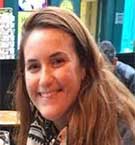 Jaclynne Lira, LCSW
Jaclynne Lira, LCSW
Clinical Supervisor of Social Work for the Program in Substance Use & Addiction Services
Jackie is currently the social work clinical supervisor on the inpatient Addiction Consult Team at Mass General. Jackie graduated with her MSW from Boston University and has worked in the substance use disorder field for over 10 years, beginning in residential work and transitioning into the medical setting at MGH. She annually supervises MSW students in addition to LICSW candidates.
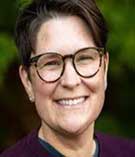 Quinn Almerico-LeClair, LICSW
Quinn Almerico-LeClair, LICSW
Chief Social Worker for MGH Charlestown Healthcare Center
James McKowen, PhD
Clinical Director of the MGH Addiction Recovery Management Service
Dr. McKowen is a licensed clinical child psychologist and an assistant professor of psychiatry at Harvard Medical School and Massachusetts General Hospital. He specialty training in youth addiction medicine. He completed his post-doctoral training at MGH in addiction medicine and pediatric neuropsychology. He is currently the clinical director of the Addiction Recovery Management Service, an outpatient clinic specializing in the treatment of adolescents and young adults with substance use and comorbid mental health issues. He conducts research in youth addiction including neuropsychological predictors engagement, marijuana smoking and aggression in youth, and he developed a protocol for treating substance use in youth with autism. He has authored and co-authored papers throughout his career examining relationships between substance use and psychopathology as well as relationships between parental mental illness and child development. Dr. McKowen also works at the intersection of climate change and youth mental health as co-chair of the MGH Climate and Mental Health Initiative.
Hasena Omanovic, PMHNP-BC
Hasena Omanovic is a nurse practitioner certified in psychiatry and addiction nursing. She obtained her master’s degree in nursing from Regis College in 2014. She has been working at MGH since January 2016 and has held roles at MGH Bridge Clinic and on the inpatient addiction consult service. Prior to her role at MGH, she worked as a psychopharmacologist in a consulting role.
Her nursing background includes work in skilled nursing care, medical-surgical care, oncology, hospice, telemetry, and home care.
Hasena enjoys teaching and has served as a preceptor for several years at MGH. She is currently part of the ISTP fellowship faculty. Hasena’s clinical interests include treatment of substance use disorders, delirium, and psychosis.
In her free time, Hasena enjoys spending time with family, traveling, gardening, tackling DIY projects and exploring local coffee shops.
Joanna Streck, PhD
Psychologist
Joanna Streck, PhD (she/her) is an Assistant Professor in Psychiatry and in Medicine at Harvard Medical School and a staff psychologist in the MGH SUD Bridge Clinic where she supervises fellows on CBT. Dr. Streck is the Associate Director of MGH HPRIR Addiction Science Research and Programs and conducts research in addiction at MGH where she supervises fellows on research projects. Her program of research seeks to identify effective SUD treatments with a focus on developing and testing innovative tobacco cessation and harm reduction interventions for populations most vulnerable to tobacco use. Dr. Streck’s work is supported by the National Institute on Drug Abuse.
 Lorrie Jacobsohn, CNS
Lorrie Jacobsohn, CNS
Psychiatric Clinical Nurse Specialist
Lorrie Jacobsohn, RN, MSN, is board certified as an advanced practice nurse in psychiatric and mental health nursing, addiction nursing and holistic nursing. She worked as a Clinical Nurse Specialist in the MGH emergency department for 27 years prior to coming to PSAS in 2018 to work on the Addiction Consult Team (ACT) and in Bridge Clinic. Lorrie is dedicated to providing holistic, evidence-based treatment and compassionate care to patients with addiction.
 Jessica Gray, MD
Jessica Gray, MD
Jessica Gray is a dually board certified family medicine physician and addiction specialist in the departments of Medicine at Massachusetts General Hospital (MGH) and Pediatrics in Mass General for Children (MGfC). She is associate program director for the MGH Addiction Medicine Fellowship and medical director of the HOPE Clinic at MGH, where she cares for women with substance use disorders and their families from the time of conception through the first two years postpartum. She also sees patients at the MGH Bridge Clinic, a low-threshold outpatient substance use disorder treatment clinic.
Prior to coming to MGH, Dr. Gray completed her family medicine residency and addiction medicine fellowship at Boston Medical Center and worked as a primary care doctor at a federally qualified health center in Dorchester, Massachusetts. She is passionate about caring and advocating for marginalized populations and supporting clinicians and others who care for patients with substance use disorders.
Madeline Spinosa, NP, PCNS
Dawn Williamson, RN, DNP, PMHCNS-BC, CARN-AP
Dawn Williamson has over 30 years of nursing experience and is an Advanced Practice Nurse (APRN) for Addictions Consultation in the Emergency Department at the Massachusetts General Hospital. She responds to the treatment needs of both individuals and families with addiction and mental health issues in the emergency setting. She trains and supervises the clinical staff, develops, and implements policies relating to patient care, and aids with establishing treatment plans. She helped develop and implement multiple policies related to care of patients with substance use disorders (SUD). These procedures include evaluation standards and practice after ED admission for opioid overdose, management of acutely intoxicated patients, administering harm reduction measures, and methadone and buprenorphine initiation from the ED.
Ms. Williamson received her Doctorate in Nursing Practice from Regis College, her Masters in Science in Adult Mental Health Nursing from Northeastern University, and her BSN from the University of Massachusetts. She is Board Certified as a Clinical Specialist in Adult Psychiatric and Mental Health Nursing. She is also a Certified Advanced Practice Addictions Registered Nurse.
She has practiced in both outpatient and hospital settings in an expanded role that includes prescriptive authority. Serving as a preceptor to nurse practitioner students from the Institute of Health Professions, Vanderbilt University, and Regis College of Nursing, she strives to pass along knowledge. As faculty for MGH Addiction Fellowship Programs, she hopes to inspire others with a commitment to decreasing the stigma associated with SUD and to be change agents in our communities.
Dawn has authored and co-authored multiple book chapters and journal articles on SUD and on managing complex patients in the emergency setting. By remaining an active member of the Association for Multidisciplinary Education and Research in Substance use and Addiction (AMERSA), she works to promote the impact that nursing can have in battling addictive disorders. Ms. Williamson believes that this influence extends beyond the hospital walls. As part of MGH Global Nursing Fellowship she traveled to Tanzania to provide addictions training to health care workers. She continues to work with members of the Lakota Tribe in South Dakota on treatment approaches to SUD.
On a legislative level, an expertise in SUD led her to be one of two APRNs appointed by the Massachusetts Department of Public Health to a medical review group informing the state Prescription Monitoring Program. She has given numerous presentations on addiction and mental health treatment and strives to expand the use of evidence-based practices.
 Deviney Chaponis, MD
Deviney Chaponis, MD
Dr. Deviney Chaponis completed her undergraduate degree at Wake Forest University, medical training at the University of Massachusetts and family medicine residency at Tufts University/Cambridge Health Alliance.
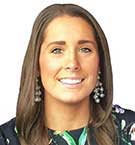 Jennifer Blewett, DSW, LICSW, DCSW, CGP
Jennifer Blewett, DSW, LICSW, DCSW, CGP
Dr. Jennifer Blewett, DSW, LICSW, DCSW, CGP is a licensed clinical social worker with over 18 years of experience in the provision of mental health and addiction treatment services. Dr. Blewett holds a Doctorate in Social Work from the Suzanne Dworak-Peck School of Social Work at the University of Southern California and a master’s degree in clinical social work from Boston College. She has extensive experience treating individuals, couples, and families with psychological problems in various inpatient and outpatient settings. Her areas of interest include the treatment of addictive behaviors and co-occurring psychiatric disorders. She serves as a clinician in psychiatry at Massachusetts General Hospital and has a private practice in Boston, Massachusetts. Dr. Blewett also sits on the Massachusetts state board for the National Association of Social Workers and is a member of the Women in Leadership Committee at Massachusetts General Hospital.
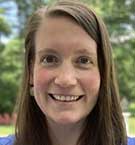 Meredith Morrison, RN, PMHNP-BC
Meredith Morrison, RN, PMHNP-BC
Meredith is a board certified Psychiatric-Mental Health Nurse Practitioner with training and experience treating patients with mental health issues across the lifespan. Her clinical career has taken her on a journey through the health care system, from inpatient to outpatient settings. She focuses on assessing, diagnosing, treatment planning and care coordination for those struggling with a wide range of mental health issues. Meredith specialize in psychopharmacology and provide diagnostic evaluations, assessments and ongoing treatment via medication management for her patients, tailored to their individual needs’.
She believes that the therapeutic relationship between a patient and provider is of the utmost importance and tries to approach all interactions with patience, warmth and understanding. Her goal is to work alongside her patients and their other health-care providers to provide evidence-based care.
Get in Touch
Questions about procedures and other aspects of the Mass General Integrated Substance Use Disorder Training Program may be directed to our program manager.
